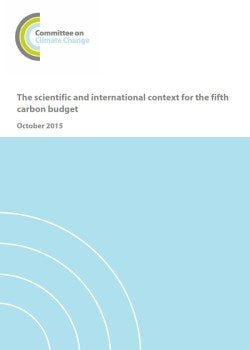

Economy
Government responds to Climate Change Committee 2015 report. Others respond
The Government has responded to the Climate Change Committee 2015 progress report. Rt Hon Amber Rudd MP, Secretary of State for Energy and Climate Change, and Rt Hon Liz Truss MP, Secretary of State for Environment, Food and Rural Affairs, are the responsible Cabinet Ministers.
In their response they say: “This Government remains committed to our carbon targets and to protecting this country from the impacts of climate change already underway. Unchecked climate change is an economic risk to this country. It is a risk to our continued growth and our way of life. It will have an impact on all of us, in many different ways, and a whole range of our activity will have a bearing on whether we are able to keep climate change within 2°C.”
“We will meet our climate change commitments, cutting carbon emissions as cheaply as possible. Our approach will be pragmatic and focussed on keeping bills low for hardworking families and businesses, while the essential work of reducing emissions carries on at pace.”
WWF-UK Head of Climate and Energy Emma Pinchbeck said: “It is encouraging that Ministers have re-affirmed their commitment to meeting the UK’s climate targets – but their ability to do this will depend on the outcome of the Treasury’s spending review. Today’s report therefore fails to address many of the committee’s recommendations, which cannot be taken forward without strong Whitehall backing for low-carbon growth.
“Last year the UK showed that decarbonisation and growth can go hand in hand – it is vital that Treasury supports, rather than wrecks, the policies that are crucial to meeting our carbon budgets.”
In response to the four recommendations:
Recommendation 1: Electricity
Ensure the power sector can invest with a 10-year lead time. As soon as possible, set the Government’s carbon objective for the power sector in the 2020s and extend funding under the Levy Control Framework to match project timelines (e.g. to 2025 with rolling annual updates).
“We recognise that low carbon electricity projects often have long lead times and need long-term visibility of available support.”
Recommendation 2: Buildings
Develop plans and policies that deliver low-carbon heat and energy efficiency, whilst also addressing the increasing risks of heat stress and flooding
“We need to find solutions that reduce emissions from heating our buildings in cold weather while also being able to efficiently keep them cool in hot weather, and provide low carbon heating for hot water and cooking all year round.”
Recommendation 3: Transport
Maintain support for the upfront costs of electric vehicles, while they remain more expensive than conventional alternatives and push for stretching 2030 EU CO2 targets for new cars and vans.
“Our aim is for almost every car and van to be a zero emission vehicle by 2050.”
Recommendation 4: Infrastructure
Make decisions that help reduce emissions and improve the resilience of infrastructure networks and services during periods of extreme weather. A range of infrastructure decisions to be made this Parliament could have significant impacts. Foremost amongst these is the need for carbon capture and storage (CCS). Others include requirements for infrastructure support for heat networks and electric vehicles. Decisions taken now need to avoid ‘lock-in’ to high carbon pathways and vulnerability to climate change risks.
“We agree that decisions taken on infrastructure over this parliament could have significant impacts on our ability to make longer term cuts to emissions and reduce our longer-term vulnerability to climate change risks.”


















